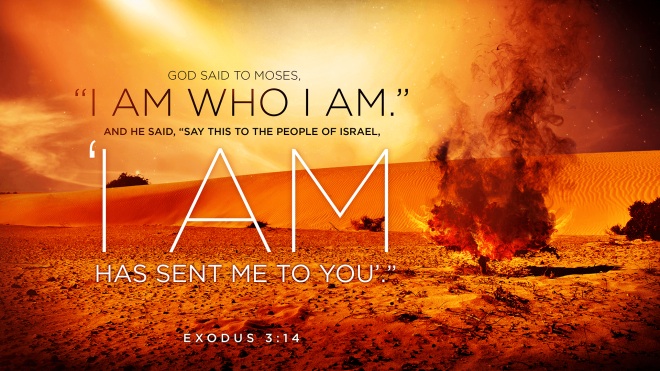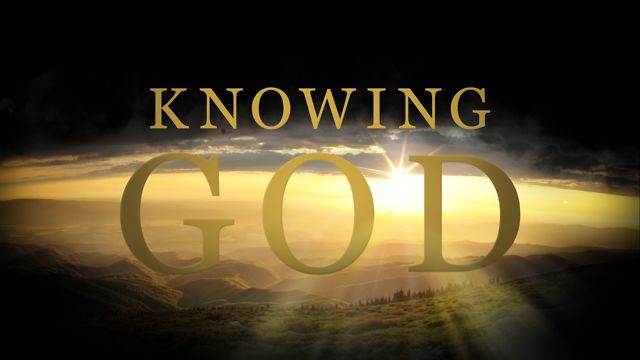Fear is one of the greatest strategies of the enemy. Fear keeps people in bondage to their present situation and makes them unable to speak out because of the consequences, whatever they may be. Fear is often connected to a lie that is promoted and believed on. Fear can also be a result of a repressive regime that is bent on controlling others and using them for its own desire.
ISIS is a perfect example of a repressive regime that seeks to control others, instill fear in those who are under its power, and use people for its own purposes. This past summer when ISIS was making headline news through their unspeakable acts I attended a news briefing in Jerusalem by Chris Mitchell, a CBN news correspondent. Chris made the statement in his briefing that one of the most powerful tools that ISIS is utilizing is that of fear. Through their public executions they are instilling fear in all who see it face to face and throughout the world. This is also what we presently see in the country of France where Muslim terrorists are rising up and killing the innocent. They want everyone to fear them and have them submit to their way of life.
Choose Today Whom You Will Fear
In this week’s Torah Portion (Exodus 1:1 – Exodus 6:1) we also see a repressive regime that sought to use fear through barbaric means in controlling a certain people, the sons of Israel. A Pharaoh arose who did not know Joseph and the children of Israel were becoming an overwhelming population in Egypt. Pharaoh feared that the sons of Israel would join the enemies of Egypt, fight against the Egyptians, and leave the land. To keep this from happening Pharaoh talked with his fellow Egyptians and devised a plan to keep the sons of Israel from increasing. The Egyptians enslaved the sons of Israel and made their lives full of bitter labor but the more they oppressed them the more they multiplied and this brought fear to the Egyptians (Ex. 1:8-14).
Pharaoh’s original plan wasn’t working so he came up with plan B, to exterminate half the race of the sons of Israel. Pharaoh called the two Hebrew midwives, Shiphrah and Puah, and instructed them to kill the Hebrew baby boys but to let the baby girls live (Ex. 1:15-16). Pharaoh thought he was in the place of God and that everyone feared him above all else. Pharaoh thought he alone determined who should live and who should die. Pharaoh was about to get his first lesson in the fear of God.
Shiphrah and Puah had a choice to make, either to fear and obey Pharaoh or fear and obey God. They couldn’t do both. They decided to fear God alone and ignored Pharaoh’s decree. They let the Hebrew baby boys live (Ex. 1:17). Pharaoh was not happy with their choice to ignore his command and he called them in again to inquire why they let the boys live. The midwives gave Pharaoh the reason that the Hebrew women are not like the Egyptian women, but rather the Hebrew women are vigorous and give birth before the midwife arrives (ex. 1:18-19).
Men & Women Who Know Their God
These midwives feared God and Pharaoh seemed helpless before them. There is no direct response to the midwives by Pharaoh recorded in the Bible except that he then commanded all of his people to kill the baby boys and let the baby girls live (Ex. 1:22). The Bible does record that God was good to the midwives and multiplied the people and made them great. God also rewarded these two midwives and gave them homes of their own because they chose to fear God above Pharaoh (Ex. 1:20-21).
Half a generation would have been extinguished if the midwives had obeyed Pharaoh’s command. Instead of this great loss, thousands and thousands of babies lived because two women had faith in God. These midwives knew God and feared Him above man. We all make decisions every day to fear man or fear God. We all make decisions everyday that affect the lives of others. Do you know God today and do you trust Him for the outcome or do you live in the constant fear of man? Each one of us faces this choice daily. People who know their God and trust in Him will literally change this world for the better and save many lives along the way.
Moses & the Great “I AM”
We all know the story of Moses. He was born during the horrific days of the Egyptian oppression when Hebrew baby boys were to be killed but his mother did all she could to save his life. Three months after birth Moses was placed in a basket, which was then set in the river and by Providence Moses was found and taken into the house of Pharaoh by his daughter. Moses was raised in royalty, however, he knew that he was a Hebrew. When Moses became a man he tried to fight for his people and defend them but eventually he had to flee Egypt and found refuge in the dessert of Midian (Exodus 2).
Forty years would pass but God did not forget Moses. God had a plan and a purpose for Moses’ life. While Moses was shepherding his father-in-law’s flocks God appeared to Moses in the burning bush on Mount Horeb but Moses hid his face so as not to look upon God. God told Moses that He has seen the affliction of His people and that their cry has reached His ears. God told Moses that now was the time to bring the children of Israel up from the Land of Egypt into the Promised Land. God told Moses that he is now sending him to go to Pharaoh to bring His people out but Moses didn’t want to go (Ex. 3:1-10).
Moses had previously tried to set his people free and failed. Moses had executed his judgement against an Egyptian that was beating a Hebrew slave by killing the Egyptian but then ran in fear for his own life. Moses didn’t want to go back. Moses had a good home, a decent living, a wife, two boys, and a flock of sheep. He didn’t need any interruptions in life at this point. The fact of the matter was that Moses really didn’t know God yet. Moses gave God excuse after excuse why he couldn’t go and God gave Moses one reason after another to trust Him.
- Moses asked “Who am I?” (Ex. 3:11)
- God responded “I will be with you” (Ex. 3:12)
- Moses asked, “What is your name? (Ex. 3:13)
- God responded “I AM Who I AM” and to say to the Israelites, “I AM has sent me to you” (Ex. 3:14). “God, furthermore, said to Moses, ‘Thus you shall say to the sons of Israel, The LORD (יהוה), the God of your fathers, the God of Abraham, the God of Isaac, and the God of Jacob, has sent me to you. This is my name forever, and this is my memorial name to all generations” (Ex. 3:15).
- Moses asked, “What if they do not believe me or listen to what I say?” (Ex. 4:1).
- God responded “What is that in your hand?” and gave Moses signs and wonders to take to the Israelites and to demonstrate His power before Pharaoh (Ex. 4:2-9).
- Moses hesitated and claimed “I have never been eloquent…and I am slow of speech.” (Ex. 4:10)
- God responded by reminding Moses that He is the creator and asked “Who has made man’s mouth? Or who makes him mute or deaf, or seeing or blind? Is it not I, the LORD?” (Ex. 4:11-12).
- Moses asked God to find someone else (Ex. 4:13)
- God’s anger burned against Moses and God told Moses that Aaron is to go with him and speak in his place (ex. 4:14-17). Moses finally agreed to go.
In the first 80 years of Moses’ life, before God came and spoke with him, Moses took care of himself. He was raised in royalty but left the kingdom. He was a man who knew how to get things done in his own strength but he hadn’t yet learned to walk with God. God appeared to Moses when he was 80 years old and told Moses who He was. From what we know, Moses was talking with God for the first time at this point and he struggled to believe in what God was saying. God took time with Moses and explained to Moses that He is the God of Abraham, Isaac, and Jacob. God revealed to Moses His name, יהוה, and God showed Moses His power through signs and wonders but Moses still had to learn to step out in faith. Moses had to learn to trust God and leave the consequences to Him.
Knowing God and Walking with Him
I was recently in a majority Muslim country whose leader is continuously making statements against Israel and the Jewish people. I used to live in this country. When I lived there the diplomatic relations and public opinion with both America and Israel were extremely good. In the past few years, however, the tides have turned and today the majority of the population of this country hates the Jews and the State of Israel. Since I hold both American and Israeli citizenship I decided to tell people who don’t know me during this visit that I am American and not to mention that I’m also Israeli, Jewish, and living in Jerusalem so as to protect myself. I thought I was being wise but to be honest, I was giving in to fear.
Towards the end of my trip I entered a certain shop where two men were working. We had a short discussion about their products before I made a purchase and one of the shop workers having heard my accent asked where I am from. I determined not to give into fear and I simply stated that I’m from Israel and live in Jerusalem. Both workers looked at me with shock but then one of them asked me about life in Jerusalem. I explained to them the diversity of the peoples and religions in Jerusalem today. Then one of them asked me a followup question, which was sort of a question and a statement at the same time; “So you are Jewish?” To which I answered yes and I also added that I believe in Yeshua. They both looked at me in confusion and one of them asked, “How can you be Jewish and Christian at the same time?” It was a great question for a person from a Muslim background who generally believes that a person is born into one particular religion and stays that way for his or her life.
I took a few minutes and explained to them the uniqueness of the life of Yeshua and how the Koran even supports this in stating that Yeshua was born of the virgin Mary by a miracle of God. These two men were hearing these words for the first time and were challenged by the person of Yeshua as the Messiah for Jew and Gentile alike. I’m glad I did not give in to my fear on that day! We need to know our God, be strong, walk in faith with Him, and leave the results to Him.
Shabbat Shalom!
If you enjoyed reading this article, we invite you to sign up for our weekly Torah Portion commentary on the sidebar to the right.
Torah Portion: Ex. 1:1 – Ex. 6:1
Hafatara: Is. 27:6 – Is. 28:13; & Is. 29:22-23
Return to Torah Portion Homepage
Copyright Jewels of Judaism. All rights reserved 2014




